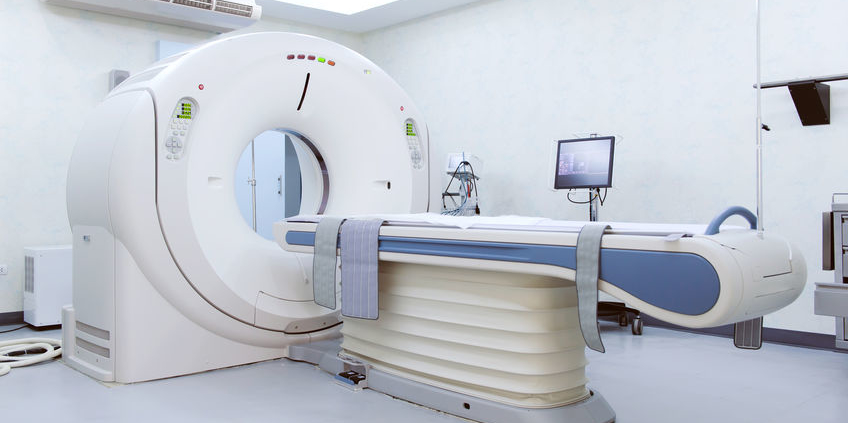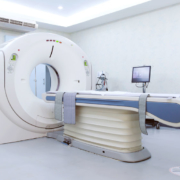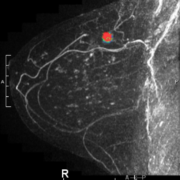5 July 2019
A study recently published in The Lancet Oncology found that the addition of MRI to mammography screening in high-risk patients detected breast cancers in earlier stages, but found that this technology was associated with a higher likelihood of false-positive results.
The study was performed at 12 hospitals in the Netherlands. Patients who were age 30-55 with a lifetime risk of breast cancer greater than 20% due to family history, but who tested negative for deleterious mutations in BRCA 1/2 and TP53 genes, were eligible to participate. Patients were randomized to one of the following surveillance arms:
- Annual MRI, annual clinical breast exam, every other year mammogram [MRI-MG], or
- Annual mammogram and annual clinical breast exam [MG]
1355 women were randomized and 231 were registered – the patients who were registered were those who did not provide consent for randomization, but followed one or the other protocol. Results from the patients who were registered but not randomized were used only in a portion of the data analysis.
The authors found that over the 7-year study period:
- 40 breast cancers were detected in the MRI-MG group, 15 were detected in the MG group
- 24 invasive breast cancers were detected in the MRI-MG group, 8 were detected in the MG group
- Invasive breast cancers detected in the MRI-MG group were smaller (9 versus 17 millimeters) than those in the MG group
- Lymph node involvement was less likely to be seen in the MRI-MG group (4 of 24 cases, 17%) versus the MG group (5 of 8 cases, 63%)
- There was one interval cancer (detected between screening exams) in the MRI-MG group and 2 in the MG group
- Increased breast density was associated with higher stage at diagnosis in both study groups
- Clinical breast exams generated a large number of false-positive results in both groups and detected only one cancer.
This study adds to the evidence nothing that the addition of MRI to screening mammography will increase the rate of cancer detection. National guidelines in the US do recommend breast MRI on an annual basis, in addition to annual mammography, for patients with a lifetime risk of 20% or greater. This study was not designed to assess outcomes for the patients who were diagnosed with breast cancer, but the authors postulated that MRI screening might lead to mortality reduction due to earlier stage at diagnosis. As reduction in mortality is the goal of screening, they stated that they plan to link the current study results with their national cancer database, and eventually publish 10-year mortality statistics for each of the groups.
Additional Information: ASCO Post





